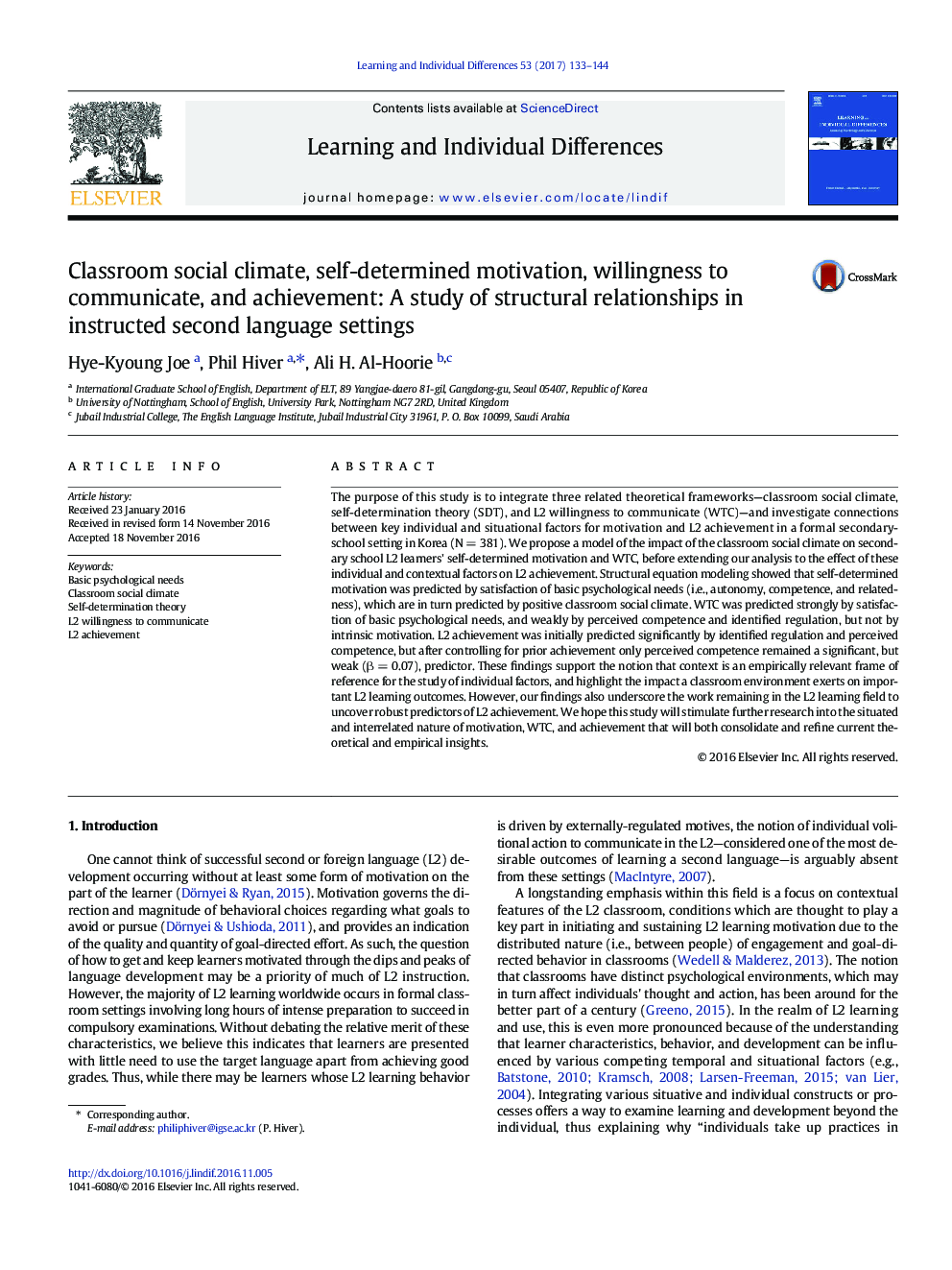| Article ID | Journal | Published Year | Pages | File Type |
|---|---|---|---|---|
| 4940187 | Learning and Individual Differences | 2017 | 12 Pages |
â¢Classroom social climate predicts satisfaction of basic psychological needs.â¢Satisfaction of psychological needs leads to stronger self-determined motivation.â¢Self-determined motivation subsequently influences L2 WTC and achievement.â¢Direct comparison of a competing model with reversed pathways was less meaningful.â¢When controlling for prior L2 achievement, no variable predicts final achievement.
The purpose of this study is to integrate three related theoretical frameworks-classroom social climate, self-determination theory (SDT), and L2 willingness to communicate (WTC)-and investigate connections between key individual and situational factors for motivation and L2 achievement in a formal secondary-school setting in Korea (N = 381). We propose a model of the impact of the classroom social climate on secondary school L2 learners' self-determined motivation and WTC, before extending our analysis to the effect of these individual and contextual factors on L2 achievement. Structural equation modeling showed that self-determined motivation was predicted by satisfaction of basic psychological needs (i.e., autonomy, competence, and relatedness), which are in turn predicted by positive classroom social climate. WTC was predicted strongly by satisfaction of basic psychological needs, and weakly by perceived competence and identified regulation, but not by intrinsic motivation. L2 achievement was initially predicted significantly by identified regulation and perceived competence, but after controlling for prior achievement only perceived competence remained a significant, but weak (β = 0.07), predictor. These findings support the notion that context is an empirically relevant frame of reference for the study of individual factors, and highlight the impact a classroom environment exerts on important L2 learning outcomes. However, our findings also underscore the work remaining in the L2 learning field to uncover robust predictors of L2 achievement. We hope this study will stimulate further research into the situated and interrelated nature of motivation, WTC, and achievement that will both consolidate and refine current theoretical and empirical insights.
